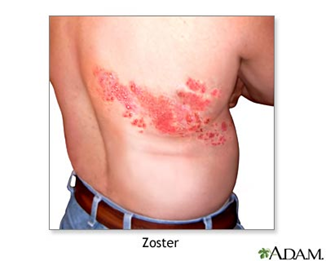Chest pain can be a very frightening symptom for adults as almost all are aware of its relation to heart attack/myocardial infarction. Apart from this could be fatal cause, many chest pains originate from elsewhere mimics it and can be confusing even for medical professionals alone on clinical grounds. These mimicking conditions vary from a simple chest wall muscle pain to pulmonary embolism which is also fatal. Therefore, other associated symptoms and signs must be sought in order to differentiate these conditions and if in any doubt it is best to call the help of emergency services immediately.
Causes of chest pain
- Angina
- Myocardial infarction
- Aortic dissection
- Pulmonary embolism
- Pneumonia with pleurisy
- Pleuritis
- Costochondritis
- Muscle pain – e.g. after vigorous coughing
- Herpes zoster (shingles)
- GERD – gastro-esophageal reflux disease
- Gastritis – peptic ulcer disease
- Pancreatitis
- Chest wall trauma
Of all these conditions, differentiating an angina/myocardial infarction from others has the most important value in first aid setup.
Angina arises from the heart muscles as they are deprived from blood (i.e. Oxygen) supply by narrowed coronary arteries due to atherosclerosis. This usually occurs when heart is beating fast and pumping out heavy load of blood in conditions like exercising as hearts need of oxygen surpasses supply. However the narrowing of vessels is not critical that they can supply adequate O2 while on resting conditions, and angina passes off with rest (Stable angina). With progression of narrowing of vessels, there comes a time that the blood flow to heart muscle is inadequate at rest or even to keep it alive. At this stage there is intense chest pain not relieved by rest (unstable angina/myocardial infarction) and heart may even cease to function if sufficiently large portion of its wall is dead.
Signs and symptoms of angina
- Sudden onset constricting type central chest pain.
- Pain radiating to neck, jaw, shoulder and upper arm.
- Shortness of breathing
- Nausea
- Vomiting
- Sweating
- Anxiety
- Dizziness
- Pain settling with rest or GTN (nitroglycerin tablet/spray).
Signs and symptoms of myocardial infarction
- Similar as above but pain is more intense.
- Pain does not settle with rest and does not respond to nitroglycerin.
- Nausea, vomiting, sweating is much more prominent.
- If severe patient may collapse, unconscious and without pulse and breathing.
It should be kept in mind that these typical symptoms may not occur in all patients and diabetic patients with neuropathy may feel no pain at all.
Differentiating from other causes,
- Muscle pain – mechanical type pain, occur with respiration or chest wall movements. No nausea, vomiting
- Costochondritis – pain around breastbone (sternum). Pressing this are cause severe tenderness
- Herpes zoster (shingles) – has characteristic skin lesions with a history of varicella
- Pneumonia – has fever, cough, and production of rusty colored sputum. Pain on breathing or coughing.
- Pulmonary embolism – sudden onset shortness of breath and central chest pain, cough with production of blood streaked sputum. Rapid heartbeat and anxiety.
- Aortic dissection – sudden tearing type central chest pain radiating to back. Shortness of breathing and loss of consciousness.
- Peptic ulcer disease – pain related to meals and settles with antacids.
First aid measures
- Call 911 urgently.
- Reassure the patient and calm him/her down.
- Make patient to adopt most comfortable position. Ensure adequate ventilation and loose the tight clothing to make breathing easier.
- Give regular strength aspirin tablet (150mg) to chew and swallow.
- Give nitroglycerin 1 tablet to place under the tongue. Or use the preparation patient has as previously prescribed.
- Asses the patients state continuously.
- If patient is unconscious and stops breathing start basic life support measures and cardio pulmonary resuscitation.
- If you are confident that chest pain is not sinister, can attend to other measures to alleviate pain,
- Antacids for peptic ulcer disease
- Over the counter analgesic (e.g. acetaminophen) for mechanical type chest pain.

